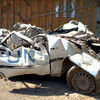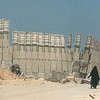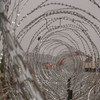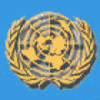
The number of Palestinians dependent on humanitarian assistance is growing. Almost 40% of the population - or about 1.4 million people - are facing particular hardship and are food insecure. They rely on assistance, mostly food, to supplement their incomes. Of these, around 600,000 people are depending almost entirely on outside aid. The delivery of assistance is currently being affected by funding shortages. The average level of funding requirements met is 26.4% for the 2004 CAP mid-year review. UNRWA, with 27.9% of funding requirements met, is particularly exposed to this under-funding situation, given the importance of its role and contribution to the delivery of humanitarian assistance in the occupied Palestinian territories. Read more about Major shortage of funds for humanitarian assistance in occupied Palestine

The living conditions of Palestinian women - including their access to health, education, food and employment - have been deeply affected by movement restrictions, military incursions and house demolitions, particularly in Rafah, where almost 10,000 Palestinians including many women, have been made homeless. “Today, as women all over the world celebrate international women’s day, Palestinian women continue to endure such hardship that their basic humanitarian needs are no longer guaranteed and protected,” says David S. Bassiouni, Special Representative, UNICEF in the West Bank and Gaza. Read more about Women's Day: UN agencies concerned with living conditions of Palestinian women

The Israeli Defence Forces have carried out a campaign of demolition and land leveling in Rafah, in the southern Gaza strip. During its three most recent incursions, between 16 and 22 January, a 31 year old Palestinian woman was killed and 8 other Palestinians were injured. Since the beginning of January, the IDF has totally or partially demolished 72 homes making 584 people homeless. The result of the house demolitions has been to create a buffer zone that stretches from Rafah passenger terminal in the east down to the Mediterranean coast. It is several kilometers in length and in places up to 200 metres deep. Read more about Humanitarian consequences of Israel's military operation in Rafah

On December 26, Israeli forces invaded Nablus, announcing a curfew. Israeli forces entered Balata refugee camp and the old city of Nablus. Several homes in Nablus, mainly in the old city were occupied. Israeli forces continued military operations, with house occupations and demolitions until they withdrew on January 6. Three Palestinians were killed on 3 January by direct live ammunition used by Israeli soldiers. A fourth Palestinian was killed during the funeral of these. The Office for the Coordination of Humanitarian Affairs released an initial report. Read more about Humanitarian consequences of Israel's military operation in Nablus

OCHA reports that approximately 680,000 - 30 percent of the Palestinian population in the West Bank - will be directly harmed by the Wall. The damage caused by the destruction of land and property for the Wall’s construction is irreversible and undermines Palestinians’ ability to ever recover even if the political situation allows conditions to improve. Read more about New wall projections: Severe humanitarian consequences for more than 680,000 Palestinians in the West Bank

Information from OCHA Field Offices collected during the week indicates that despite some limited improvements in the Southern West Bank, the blockade of Palestinian towns has not eased since Israel’s announcement on November 2 and 5 that its blockade of Palestinian towns would be relaxed. Read more about OCHA: Despite Israeli announcement, Israel's siege on Palestinian towns has not eased

The co-chairs of the Local Aid Coordination Committee (LACC) – the group of international donors to the Palestinians — today released a report on the rapid expansion of Israel’s “separation barrier” around East Jerusalem. Read more about Latest donor update on the impact of Israel's separation barrier

Today, the UN Office for the Coordination of Humanitarian Affairs (OCHA) presented its humanitarian action plan for the occupied Palestinian territories for the coming year. The plan starts by stating that te cause of the humanitarian crisis in the occupied Palestinian territories is “fundamentally political”. According to OCHA this problem “cannot be solved with humanitarian aid alone.” Read more about OCHA presents humanitarian action plan 2003








